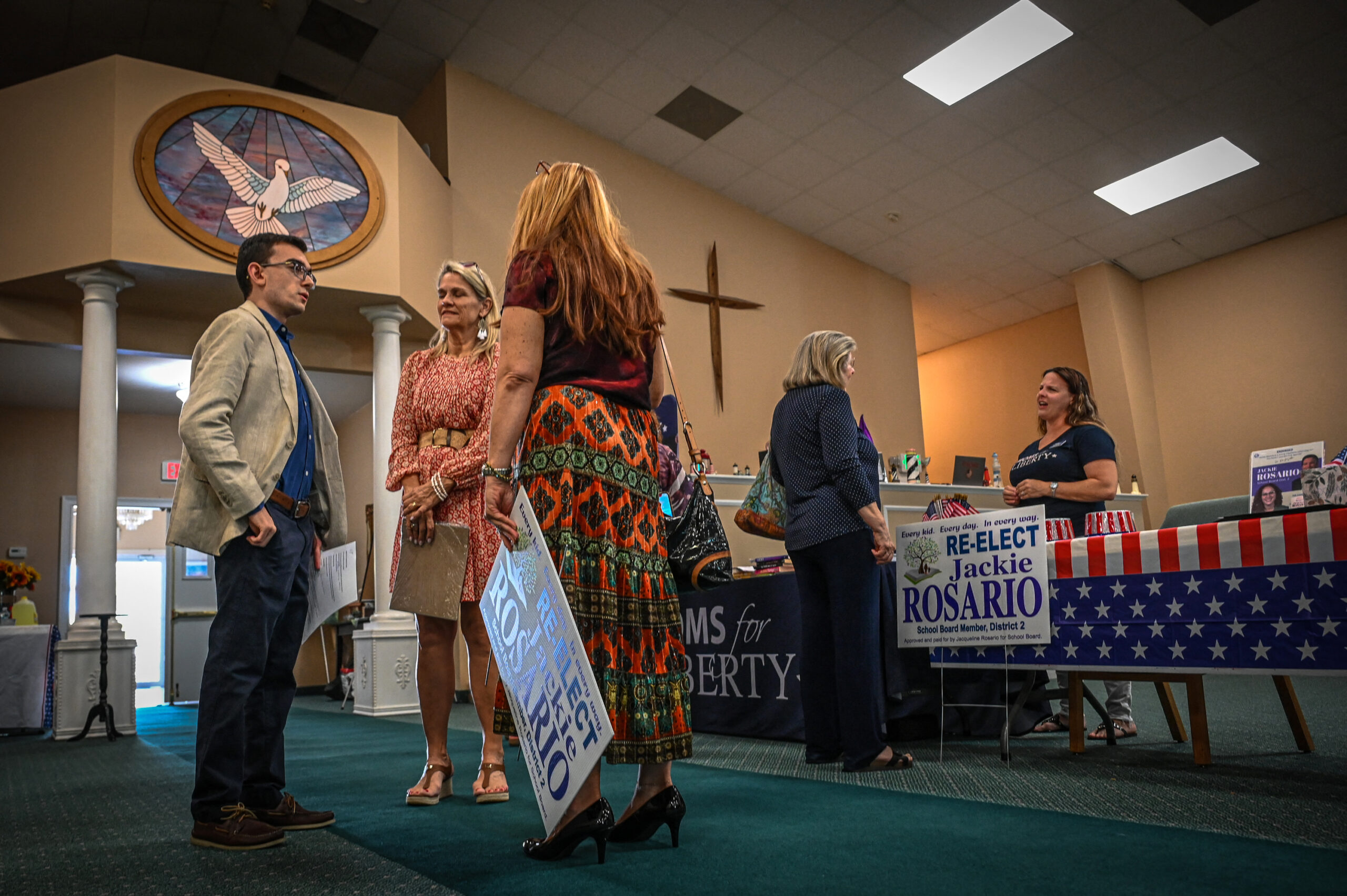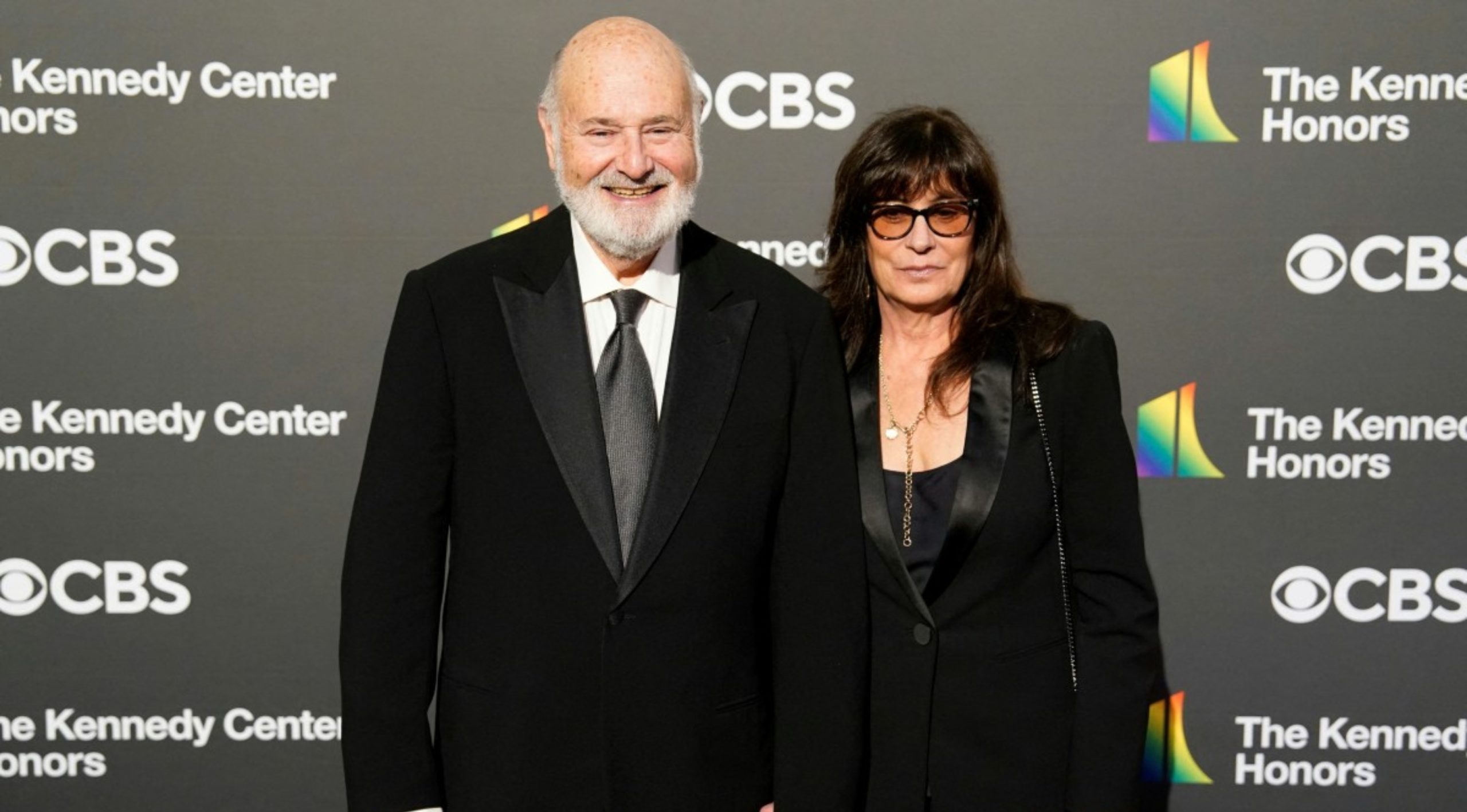International
In Florida, right-wing mothers lead the ‘parents’ revolution’

| By AFP | Léa Dauple |
A conservative group known as “Moms for Liberty” is triggering a minor earthquake in Florida school board elections, hoping the tremors will ripple across the entire United States.
The group demands that often-sleepy school boards wake up and yank “problematic” books from schools, and empower parents to have more say in public education.
“I am on the right side of history,” said Jacqueline Rosario, who is seeking re-election to a school board in Indian River County on Florida’s east coast.
Rosario warmly welcomed guests to a lounge in this charming seaside resort, speaking to them about a subject that distresses her: the “insane” education that young Americans get in public schools.
“Moms for Liberty,” founded only last year in Florida but now claiming 100,000 members in 42 states, offers wholehearted endorsements of school board candidates like Rosario.
That support has turned school boards, historically apolitical elected bodies, into real powder kegs dealing with subjects such as gender, sexuality and racism in schools.
These days, hot-button culture and social issues ignite passions at the local level, not just the state and national levels.
Some heavyweight Republicans, like Florida Governor Ron DeSantis, a possible presidential candidate in 2024, have gotten involved in the humble school board battles.
Moms for Liberty publicly endorsed DeSantis, and he in turn endorsed candidates like Jacqueline Rosario.
‘Pornographic’
Rosario has made a personal battle out of one of Moms for Liberty’s obsessions — “inappropriate” books.
As she explained the reasons for her anger, Rosario interrupted the interview.
“Can I read you a couple of excerpts?” she asked, warning that she might feel “weird” because some material “is so explicit.”
The candidate recites a sex scene from Margaret Atwood’s famous novel “The Handmaid’s Tale,” which also became a hit television series.
“That’s disgusting,” Rosario, a former English teacher, said of the work, her voice suddenly stern.
She read an excerpt from another book, “Push”, which recounts in graphic detail the rape of a child by her father.
“There is absolutely no literary, scientific, political or any other value to this kind of reading, not for children,” Rosario said, adding that she would like such “obscene… pornographic” books to be replaced by others of “higher quality,” including ones offering vocational training.
“You’re opening up Pandora’s box for children who are supposed to preserve their innocence,” Rosario said.
She stated that she does not want to “ban or burn” such books, but only to get them out of the classroom — a message hammered home by Moms for Liberty.
Flags and popcorn
Later in the afternoon, Rosario campaigned at a small church in Vero Beach.
The audience seemed to be behind her. Between a tray of cheese and a bowl of popcorn, Terri Privett, a 53-year-old who loves former president Donald Trump’s rallies, worries that “the left is indoctrinating our children with things that are just not American.”
During the reception, the song “God Bless the USA” by Lee Greenwood played on a loop — interrupted, however, when all attendees stood to pledge allegiance to the flag.
Though he is not present, DeSantis’ influence is palpable. At the entrance, a lighted sign calls for people to vote for him to “save Florida.”
“Our governor is a champion for parental rights,” said Jennifer Pippin, head of the Indian River County chapter of Moms for Liberty, convinced that he will win re-election.
For this crowd, DeSantis’ military background and his image as a family man are strong reasons to like him.
On a table festooned with small US flags is a list of candidates running in various local elections who espouse anti-abortion rights views. Flyers call on the citizenry to pull children from public schools.
Organizers have also brought two piles of books — around 150 they deem problematic — that Jennifer Pippin said contain scenes of “rape, incest” or even “oral sex.” Colorful post-it notes indicate the pages of the books with the material deemed questionable.
Love for DeSantis
Moms for Liberty has had a meteoric rise, a sign of the simmering culture wars across the United States.
“I think you’re going to see that American politics are going to be changing a lot because of this parent revolution,” said Tiffany Justice, one of the co-founders.
She predicts a bright political future for politicians like DeSantis who join up with groups seeking to empower parents over educators.
DeSantis won hearts at the first Moms for Liberty national conference, where he gave a speech.
Moms for Liberty members “wished Ron DeSantis was their governor,” Justice said. “You could hear them say we can’t wait to vote for him for president of the United States.”
International
Police investigate deaths of Rob Reiner and wife as apparent homicide

The Los Angeles Police Department (LAPD) is investigating the deaths of Hollywood actor and filmmaker Rob Reinerand his wife as an “apparent homicide,” amid a wave of tributes to the director of classics such as When Harry Met Sally.
According to U.S. media reports on Sunday, Rob Reiner and Michele Singer Reiner were found dead at their Los Angeles mansion with what appeared to be stab wounds.
Several political figures shared messages of condolence following the reported deaths of the director of A Few Good Menand his wife.
While the LAPD did not officially confirm the identities of the victims, it stated that homicide detectives were dispatched to the Reiner residence.
“At this time, no additional details are available and the investigation into an apparent homicide is ongoing,” the Los Angeles Police Department said in a statement posted on social media.
LAPD Deputy Chief Alan Hamilton told reporters that no arrests have been made and that no individuals are currently being questioned as suspects.
“I’m not going to confirm whether anyone is being questioned at this moment or not. We are going to try to speak with as many family members as we can,” Hamilton said.
CNN reported that a family spokesperson confirmed the deaths of Reiner and his wife.
California Governor Gavin Newsom, former U.S. President Barack Obama, and former Vice President Kamala Harrisissued statements expressing their condolences.
International
U.S. and Mexico Reach Deal to Address Water Deficit Under 1944 Treaty

The United States and Mexico have reached an agreement to comply with current water obligations affecting U.S. farmers and ranchers and for Mexico to cover its water deficit to Texas under the 1944 Water Treaty, the U.S. Department of Agriculture said in a statement.
The department уточified that the agreement applies to both the current cycle and the water deficit from the previous cycle.
On Monday, U.S. President Donald Trump accused Mexico of failing to comply with the water-sharing treaty between the two countries, which requires the United States to deliver 1.85 billion cubic meters of water from the Colorado River, while Mexico must supply 432 million cubic meters from the Rio Grande.
Mexico is behind on its commitments. According to Washington, the country has accumulated a deficit of more than one billion cubic meters of water over the past five years.
“This violation is severely harming our beautiful crops and our livestock in Texas,” Trump wrote on Monday.
The Department of Agriculture said on Friday that Mexico had agreed to supply 250 million cubic meters of water starting next week and to work toward closing the shortfall.
Agriculture Secretary Brooke Rollins, quoted in the statement, said Mexico delivered more water in a single year than it had over the previous four years combined.
Trump has said that if Mexico continues to fall short of its obligations, the United States reserves the right to impose 5% tariffs on imported Mexican products.
Mexico’s Deputy Foreign Minister for North America, Roberto Velasco, said that a severe drought in 2022 and 2023prevented the country from meeting its commitments.
International
Several people shot in attack on Brown University campus

Several people were shot on Saturday in an attack on the campus of Brown University, in the northeastern United States, local police reported.
“Shelter in place and avoid the area until further notice,” the Providence Police Department urged in a post on X. Brown University is located in Providence, the capital of the state of Rhode Island.
U.S. President Donald Trump said on his social media platform Truth Social that he had been briefed on the situation and that the FBI was on the scene.
At 5:52 p.m. local time (11:52 p.m. GMT), Brown University said the situation was still “ongoing” and instructed students to remain sheltered until further notice.
After initially stating that the suspect had been taken into custody, Trump later posted a second message clarifying that local police had walked back that information. “The suspect has NOT been apprehended,” the U.S. president said.
-

 International5 days ago
International5 days agoWashington declares State of Emergency as atmospheric river brings severe flooding
-

 International5 days ago
International5 days agoU.S. to require five-year social media history from tourists under Visa Waiver Program
-

 Central America4 days ago
Central America4 days agoHonduras election crisis deepens as CNE president denounces intimidation attempts
-

 Central America5 days ago
Central America5 days agoOAS and EU urge honduran political actors to respect vote results and avoid unrest
-

 International4 days ago
International4 days agoCuba battles out-of-control dengue and chikungunya epidemic as death toll rises to 44
-

 International4 days ago
International4 days agoColombia says it would not reject Maduro asylum request as regional tensions escalate
-

 International2 days ago
International2 days agoSeveral people shot in attack on Brown University campus
-

 International12 hours ago
International12 hours agoPolice investigate deaths of Rob Reiner and wife as apparent homicide
-

 International4 days ago
International4 days agoEcuador on track for record violence as homicides hit highest level in Latin America again
-

 Central America1 day ago
Central America1 day agoPanama seizes over three tons of drugs hidden in Caribbean port container
-

 International5 days ago
International5 days agoSix ecuadorian soldiers jailed pending trial for alleged extrajudicial execution
-

 Central America12 hours ago
Central America12 hours agoOAS urges swift recount in Honduras as election results remain uncertain
-

 International2 days ago
International2 days agoU.S. and Mexico Reach Deal to Address Water Deficit Under 1944 Treaty


























